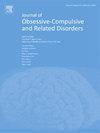Seeing beyond the diagnostic and statistical manual: A function-centered review of obsessive-compulsive disorder and anxiety disorders
IF 1.5
4区 医学
Q3 PSYCHIATRY
Journal of Obsessive-Compulsive and Related Disorders
Pub Date : 2025-06-10
DOI:10.1016/j.jocrd.2025.100967
引用次数: 0
Abstract
Obsessive-compulsive disorder (OCD) is classified within its own diagnostic category, separate from anxiety disorders, yet clinical practitioners still treat it as an anxiety disorder; both conceptually and therapeutically. This paper examines the rationale for seperating OCD from the anxiety disorders by contrasting cognitive models of anxiety disorders and OCD, and reviewing phenomenological and psychobiological evidence for OCD's distinctiveness. We compare OCD's behavioral functions with those of specific phobia, panic disorder, agoraphobia, social anxiety disorder, generalized anxiety disorder, and health anxiety disorder. Our review finds no compelling evidence that OCD differs sufficiently from anxiety disorders to warrant its own category. The same functional behaviors are evident in OCD and other anxiety disorders, with the foci of threat being the differentiating factor between disorders (e.g., fear of public speaking vs. fear of contamination in social anxiety and contamination-OCD, respectively). Consequently, we conclude by emphasizing that future research should focus on behavioral function when studying mental disorders, since descriptive similarities may not indicate clinical or functional equivalence. For diagnostic manuals to maintain validity and clinical utility, they must incorporate a functional analytic perspective. Failure to do so may result in inadequate diagnostic categories and stagnant treatment advances (cf. clinical guidelines for OCD have remained unchanged since 2005). While diagnostic manuals are meant to guide treatment selection, descriptive diagnoses need complementary theory-driven case conceptualizations to advance our understanding of maintaining factors and mechanisms of change during treatment. Without this approach, theoretical progress in OCD may stall, ultimately affecting patient outcomes.
超越诊断和统计手册:强迫症和焦虑症的功能为中心的回顾
强迫症(OCD)有自己的诊断类别,与焦虑症分开,但临床医生仍将其视为焦虑症;无论是概念上还是治疗上。本文通过对比焦虑障碍和强迫症的认知模型,探讨了将强迫症与焦虑障碍区分开来的基本原理,并回顾了强迫症的独特性的现象学和心理生物学证据。我们将强迫症的行为功能与特定恐惧症、惊恐障碍、广场恐怖症、社交焦虑障碍、广泛性焦虑障碍和健康焦虑障碍的行为功能进行比较。我们的研究没有发现令人信服的证据表明强迫症与焦虑症有足够的区别,因此不能单独归类。同样的功能行为在强迫症和其他焦虑障碍中也很明显,威胁焦点是疾病之间的区分因素(例如,社交焦虑和污染-强迫症分别是对公共演讲的恐惧和对污染的恐惧)。因此,我们的结论是强调未来的研究应该集中在研究精神障碍时的行为功能,因为描述性的相似性可能并不表明临床或功能等效。为了保持诊断手册的有效性和临床效用,它们必须包含功能分析的观点。如果不这样做,可能会导致诊断类别不充分,治疗进展停滞不前(参见强迫症临床指南自2005年以来一直保持不变)。虽然诊断手册旨在指导治疗选择,但描述性诊断需要补充理论驱动的病例概念,以促进我们对治疗过程中维持变化的因素和机制的理解。如果没有这种方法,强迫症的理论进展可能会停滞,最终影响患者的治疗结果。
本文章由计算机程序翻译,如有差异,请以英文原文为准。
求助全文
约1分钟内获得全文
求助全文
来源期刊
CiteScore
4.00
自引率
5.60%
发文量
46
审稿时长
47 days
期刊介绍:
Journal of Obsessive-Compulsive and Related Disorders (JOCRD) is an international journal that publishes high quality research and clinically-oriented articles dealing with all aspects of obsessive-compulsive disorder (OCD) and related conditions (OC spectrum disorders; e.g., trichotillomania, hoarding, body dysmorphic disorder). The journal invites studies of clinical and non-clinical (i.e., student) samples of all age groups from the fields of psychiatry, psychology, neuroscience, and other medical and health sciences. The journal''s broad focus encompasses classification, assessment, psychological and psychiatric treatment, prevention, psychopathology, neurobiology and genetics. Clinical reports (descriptions of innovative treatment methods) and book reviews on all aspects of OCD-related disorders will be considered, as will theoretical and review articles that make valuable contributions.
Suitable topics for manuscripts include:
-The boundaries of OCD and relationships with OC spectrum disorders
-Validation of assessments of obsessive-compulsive and related phenomena
-OCD symptoms in diverse social and cultural contexts
-Studies of neurobiological and genetic factors in OCD and related conditions
-Experimental and descriptive psychopathology and epidemiological studies
-Studies on relationships among cognitive and behavioral variables in OCD and related disorders
-Interpersonal aspects of OCD and related disorders
-Evaluation of psychological and psychiatric treatment and prevention programs, and predictors of outcome.

 求助内容:
求助内容: 应助结果提醒方式:
应助结果提醒方式:


